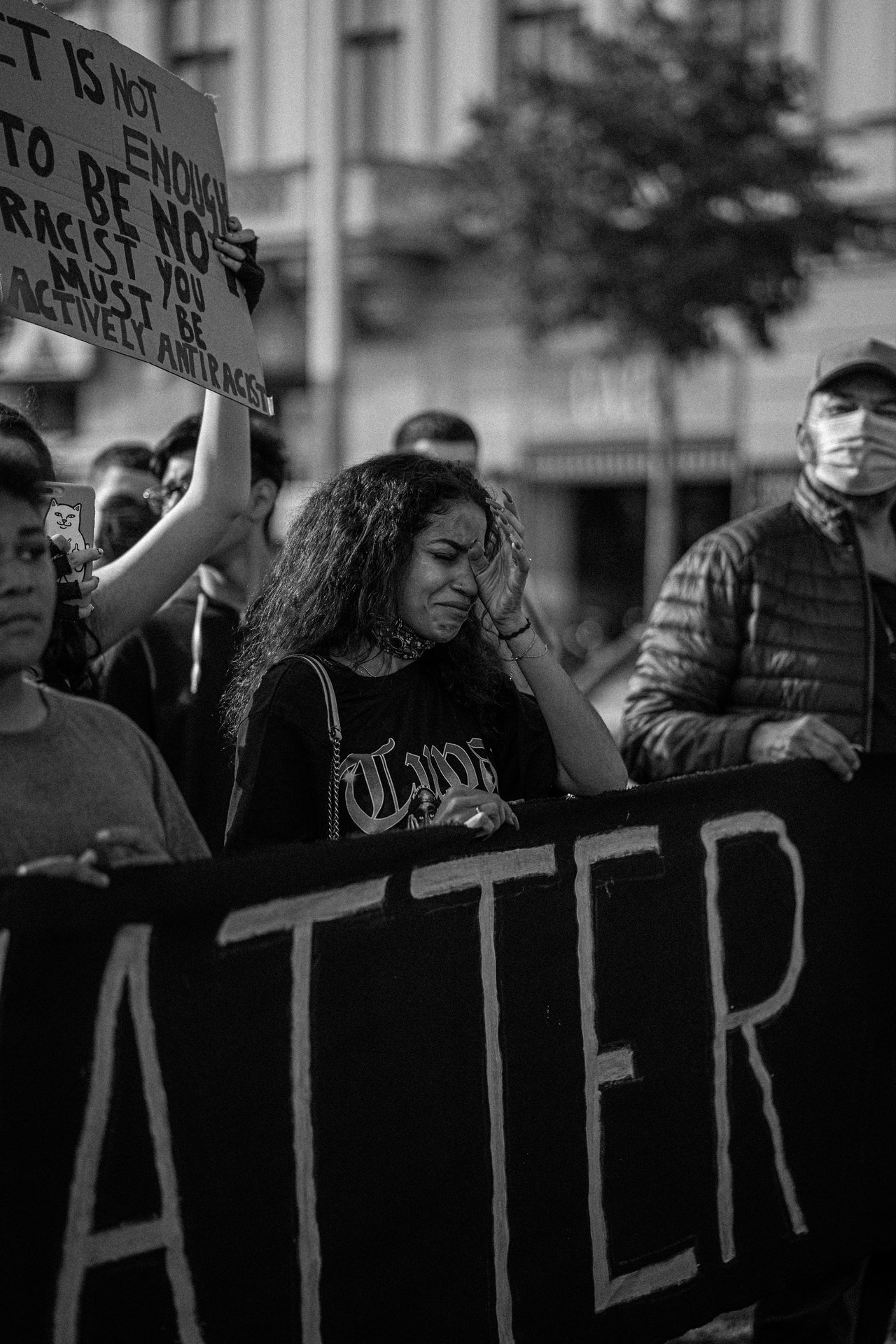*Eleditor’s note: Elephant is a diverse community of sixteen million readers and hundreds of writers (you can write too!). We are reader-created. Many blogs here are experience, opinion, and The One Right Point of View. We welcome all points of view.
~
The definition of compassion is easy to understand.
There’s no complexity involved; compassion is straightforward. It’s simply showing a genuine kindness and consideration for others. That’s it. It couldn’t be more basic.
It’s an innate, inherent human quality and no more difficult to us than learning to ride a bicycle or speaking our native language.
If so, then why is it in such short supply?
Why do so many people struggle to be compassionate? Why should something that we’re genetically programmed to both give and receive be so damn hard to actually execute?
Why can’t we, as a species, be more compassionate?
On an international level, it seems far easier to spread hate and fear, to “divide and conquer,“ than it is to take the time to understand the range of cultural, economical, and political differences that might help make sense of a nation’s difficulties. Differences that might enable us to become more compassionate toward those people.
For instance, refugees fleeing civil war in Syria are too often painted as leeches seeking to exploit the financial benefits of the West rather than fathers and mothers trying to get their children to safety.
Let’s just ignore the fact that they’re not trying to find a better life but a “life“ full stop. Let’s not give them the bare minimum of understanding (and therefore compassion), and let’s revert to crass, incorrect assumptions about them. Besides, if they’re different, they’ve probably done something to deserve their fate anyway.
Where is the compassion?
We can’t blame the moral laziness of our political leaders, because we all do it—every day.
That woman who’s been twice divorced? Well, obviously there’s something wrong with her. Let’s not take the time to consider that her relationship attachment-style was honed during an abusive upbringing and that she doesn’t have the emotional tools to identify a suitable mate. Let’s just throw assumptions at her. She probably brought all that on herself; she’s not deserving of compassion.
That kid who’s always late for school, who seems to be disinterested in academic success, who is surly and aggressive to his teachers—just a feckless child, typical of the apathetic youth of today, right? Well, what if he’s the carer for his sole remaining parent, and he’s simply too exhausted to care about his education right now? He’s got bigger things at home to deal with. No—he’s just a loser, we judge.
And don’t get me started on the toxic, arrogant assumptions we make when mental health is added to the equation.
I mean, come on. It’d take five minutes of our day to actually listen to those people, to hear their life stories. To give them some compassion. It takes more effort not to do those things.
So, why don’t we?
There are two reasons why we fail to offer compassion.
The first is that compassion requires listening. It means hearing what another has to say about their lives, their experiences, and validating those words. However, to do that, we may have to accept truths we don’t like. It may mean having to dismantle prejudices or our own vested self-interests. And, as a race, we suck at that.
For instance, the only people who have an issue with Black Lives Matter are the people who are invalidating the experiences of the people protesting. The anti-BLM movement doesn’t necessarily believe that Black lives don’t matter, more that the issues at the heart of this aren’t worthy of protest. After all, we all live on the same planet and we all have access to the same opportunities, don’t we?
Well, the thing is—we don’t.
If you’re white and middle class, you have opportunities not afforded to a Black, working-class kid. Although, it may be a painful truth to have to admit there is such a thing as white privilege. But, let’s be honest—we all know that deep down—don’t we?
There will always be an Oprah or a Barack Obama who breaks through the glass ceiling, but let’s not pretend they’re the norm. They’re not. They’re astonishing people who can be used as aspirational figures, but they’re also not representative of the people who are currently trying to make their voices heard. The grievances of the BLM movement are valid—and we’d know that if we just listened to them.
That might mean listening to tales of social injustices, stories that will either break our hearts or make our skin crawl. It might require us to acknowledge that our own relative affluence and professional success may be—in no small part—due to the color of our skin. It may even reveal traces of our own racism.
And, really, who wants to face any of those things?
No, it’s easier to just dismiss the BLM movement as unfounded, to even call them terrorists. Anything that means we don’t have to listen to those voices.
In short: Why are so many people lacking in compassion for Black Lives Matter? Because they haven’t even listened.
And, despite physically coming equipped with both ears to hear, and brains to process what’s being said, our species’ ability to listen is woeful.
Without listening—there is no compassion.
The second is that compassion requires confidence. And this is where compassion seems contradictory.
On a personal level, self-confident people are also—seemingly paradoxically—more compassionate. They’ve worked on themselves, faced their own toxic traits and lack of self-esteem, and are comfortable in their own skin. As a result, when they walk into a room, they’re not ruminating on what everyone else thinks about them; they’re not constantly trapped in their own minds.
They’re capable of seeing someone’s distress or unease because they’re not obsessing over their own.
If you doubt this, consider the times in your own life when you’ve faced a lack of compassion from another person. I can almost guarantee that, firstly, that person simply didn’t hear you; they didn’t listen. Secondly, I can almost guarantee that the other person struggles with their own self-image or lack of self-worth. People with little self-confidence aren’t always the most supportive; it’s not that they don’t care, but more that our own messy problems are emotional triggers that they don’t know how to manage.
We do this on a social and national level, as well.
You don’t need to attend Harvard or M.I.T to be emotionally educated. Whether it’s been gained through a church or community, some social groups are more self-confident than others. Some communities are better equipped to be more compassionate because their own identities are rock-solid. They may not always like outsiders or people whose personal stories do not match their own, but they don’t see them as a threat.
It’s no surprise that communities who are already being squeezed with a low-standard of living, high unemployment, and failing schools struggle to be compassionate to those outside their social circle. Their own identity, their own collective self-confidence is already virtually nonexistent. And, in those cases, hate can become the glue that binds them together.
It’s a huge irony: Compassion, love, and inclusiveness may be harder to employ, but they’re far more cohesive social forces than hate; than division; than crass, blanket assumptions. However, we also can’t fully blame those communities for reverting to the easiest, less compassionate option.
We all do it; why shouldn’t they?
But, I can’t help thinking that we’re reaching a tipping point. We’ve reached a stage where if we don’t start becoming compassionate now, the divisions might be too great to overcome.
There’s not a single item on the news that isn’t polarized.
We’ve got people still refusing to wear masks because, despite the scientific evidence, COVID-19 is one giant hoax; on the other side, there are people who simply cannot fathom what planet those COVID-19-denying people are living on.
There are people who believe Trump stands for all that is great in America; opposing them are the citizens who believe he represents the very worst of the American dream.
The Earth is warming at an unprecedented rate, but climate change targets are seen, by many, as a petty way to curb the economic growth of certain nations.
The populations of Brazil and Turkey are divided into those who worship their charismatic presidents and those who think them incompetent, buffoons.
Thanks to Brexit, the United Kingdom has never been more divided.
And then there’s Black Lives Matter.
Battle lines have been drawn all around the world. No one is listening to each other, and the respective trenches are growing deeper and more fortified.
We don’t have to agree. We are under no obligation to be swayed by one argument or another. But we have to listen. We have to be compassionate toward each other, even those we are diametrically opposed to. Even those movements or ideologies we don’t believe.
We have to listen.
If we don’t, 2021 will be no better than the madness of 2020, regardless of any vaccine we might create to counter the Coronavirus.
It’s time to start listening.
It’s time to start being compassionate.
Now.
~







Read 5 comments and reply